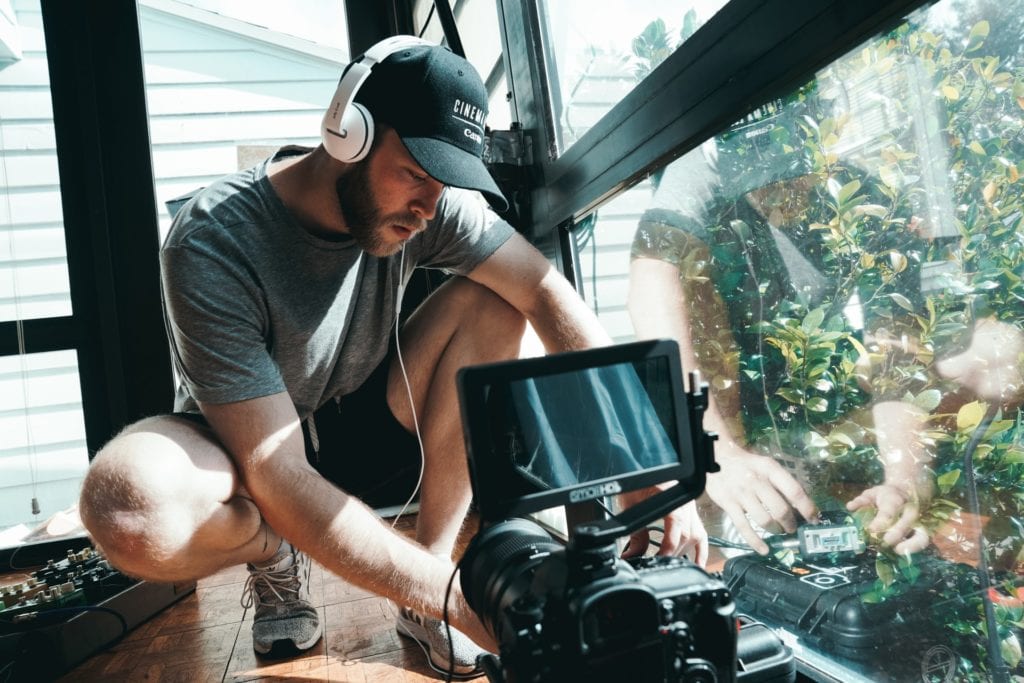How to Choose a Director of Photography
If you’re reading this blog here today, it probably means one of two things. One: you want to learn more about film. Or two: you’re looking for tips on how to find your very own director of photography for your indie film.
For right now, let’s assume it’s the latter, and in which case, it would be helpful to check out our contests which could help you to receive funding for your independent film!
Moreover, before you can find the perfect director of photography, first make sure you know exactly what it is they do.
What is a Director of Photography?

The most important thing to know right off the bat is the position you’re trying to fill. Thanks to director of photography William DeJessa, we have a great answer.
He describes the director of photography (DP) as being the general contractor of the filmmaking process in the sense that as a DP, you are helping to achieve the vision of the director and you are in charge of the crew who is there to help you create that vision.
Therefore, while the director focuses primarily on his/her characters and actors, the DP focuses on the logistics in how the director’s creative vision can be achieved from a visual standpoint and how the crew is handled. Much like that of a general contractor.
Taking a step further into the specifics of the job, 522 Productions reminds us that a director of photography is the individual who helps achieve the vision that the director envisions. This means that he or she must know how to assemble equipment like cameras, lights, and lenses.
The director of photography is responsible for creating the mise en scene of the film, or the overall look of the film. The Greater Cleveland Film Commission makes mention of the fact that the person who has to make certain that the lighting, frames, and lenses support the vision that the director has is the director of photography.
Director of Photography vs. Cinematography
Sometimes, the terms director of photography and cinematographer are used interchangeably, so if you see these two terms, know that at their core, they do mean the same thing.
DeJessa explained this well: for the most part, the terms are interchangeable. Though some people will refer to a cinematographer as being the individual who operates the camera with a very hands on approach, whereas a DP could have a crew who assists him or her, for the most part, he said, the two terms are interchangeable.
How to Choose your DP
Since your director of photography is going to be playing a significant role in your film, you don’t want to make the decision lightly on who to hire as your DP.
Here are some things to consider before choosing who you want to fill the role of your director of photography.
Look at their Previous Work

Because your director of photography will be in charge of helping you bring the vision in your mind to the visual screen in front of you, you want to make sure you are familiar with their style and would want their help in particular to bring your vision to life.
Not only will going over their previous work help you to ensure you like their style, but it will also help your candidates to gain credibility as well. It will prove to you that they have worked on films before and it will show you the type of work they will be willing to put into your project.
Find Someone Who Will Compliment your Skills
DeJessa made a very good point when we were discussing cinematography: different directors of photography are good at different things.
Although there are some DPs who have their own niche, a good DP should generally be able to cover any bases necessary.
As a director, you could be someone who wants to be involved in all technical parts of the project and want to focus on your characters or you could be someone who wants more input on the technical aspects of filmmaking. You should work with a cinematographer who will complement your style.
A good DP will be able to fill in and generally cover any bases needed; a good DP should be able to be well rounded.
Ask for Referrals
Another helpful tool in choosing your director of photography is to ask your candidates for references.
Like with any job, it is useful to study a candid review of your potential employee which can serve to assure you of what work he or she is willing to put into your project.
Interview them with Questions Relevant to your Project

Meeting with your potential director of photography and discussing the ins and outs of your project will help you to evaluate their interest in your project.
Not only will this just tell you their interest in working on the project, but it will help you to explore their passion about the subject matter as well.
In addition, their answers will help you to assess their prior knowledge on the topic which can be helpful when brainstorming how you want your project to appear in the frame and on the screen.
Gauge their Interest in your Script
Linked with the previous point, showing your candidates your screenplay or part of your screenplay can help to clue you in to how interested they are in your story and the passion they will bring to the project.
Even if you’re speaking with the most talented cinematographer, if they lack passion for your project, it could be difficult to find common ground with them while working together, which may create difficulties on set.
If you’re interested in making your own film and looking for funding to get your own cinematographer, check out our contests to receive funding for your project! And a big thank you to William DeJessa for providing insight into cinematography!